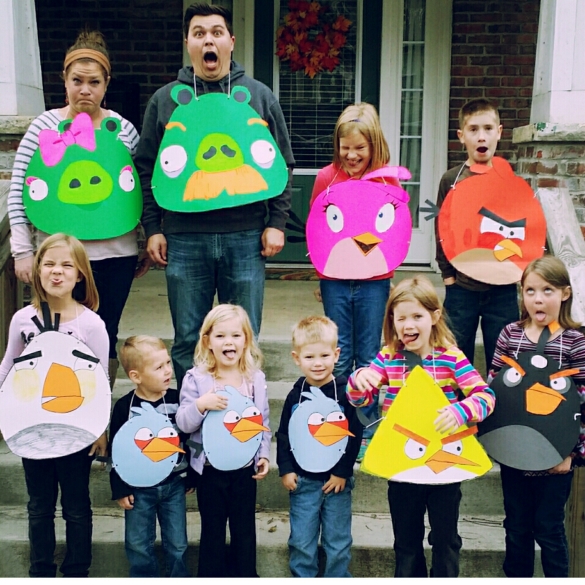Now that Halloween is a few weeks in the past, I feel like I can post about the holiday since we ought to be past the most charged time of judging the crap out of each other for either celebrating (Christian freedom here, people!) or not celebrating (we’re being holy because God is holy!) Halloween. To that end, I came across two articles that I think talked about Halloween in some helpful ways regardless of which side of the fence you fall on.
On the more anecdotal side, Michael Spencer reminisced on the innocuous Halloween celebrations of the past, particularly when he was younger. And he traces the arguments (fear tactics?) that got presented along the way that turned a candy-getting, dress-up event into Satan’s playground.
Best part:
Evangelical parents decided that their own harmless and fun Halloween experiences were a fluke, and if their kid dressed up as a vampire, he’d probably try to become one. If there was a pumpkin on the porch, you were inviting demons into your home, just like it says in Hezekiah.
He concludes that in taking some simple fun and labeling it demonic, “we ruined something good, and everyone knows it but us.” The Halloween he and I grew up with could never be confused with anything demonic. It was silly and fun and full of candy. And I think it’s worth remembering that Halloween hasn’t always been treated with such suspicion and vitriol, not because we were too blind to see it as evil but because it really wasn’t evil. Maybe not good and certainly not necessary, but definitely not evil.
On the theological side, Mike McKinley does a nice job applying the prominent Christian views on Halloween to Paul’s arguments in 1 Corinthians 8 about eating food sacrificed to idols. As Paul thinks that there’s no inherent wrong in eating I-was-sacrificed-to-a-pagan-god meat, he teaches that a) anyone who thinks it is evil sins if he eats and b) we ought to regard one another with love and charity, regardless of our convictions on the aforementioned meat.
Best part:
Perhaps there is a helpful pattern there for us to apply to Halloween. There is nothing inherently demonic about carving Jack-o-lanterns, wearing costumes, and trick-or-treating. Some people might do those things for wicked reasons (like the people who sacrificed animals to idols in Corinth), but that doesn’t mean that everyone who participates is similarly guilty (just as Christians in Corinth could eat those animals with a clean conscience).
He then lays out four basic principles which seem reasonable that all Christians ought to be able to agree on:
•Some ways of celebrating are obviously unacceptable for Christians. Any sort of participation in witchcraft, fortune-telling, or demonic activity are expressly forbidden by Scripture.
•Outside of those forbidden activities, Christians have liberty to participate in Halloween.
•However, a Christian should not violate his or her conscience (Romans 14:20-23). If you come to the conclusion that you shouldn’t celebrate Halloween, then you should not do it.
•We should not pass judgment on other believers for the different choices that their consciences lead them to make (Romans 14:4).
I love my brothers and sisters who fall on both sides of the issue and appreciate that we don’t agree on our conclusions. But we really all need a reminder that either condemning others for their (lack of) conviction OR enticing a brother or sister to go against their (obviously wrong) conviction are both sin—and that’s biblically clearer than whether one should celebrate Halloween or not.
(And in case anyone wanted to know where we stand on the whole Halloween thing…)
